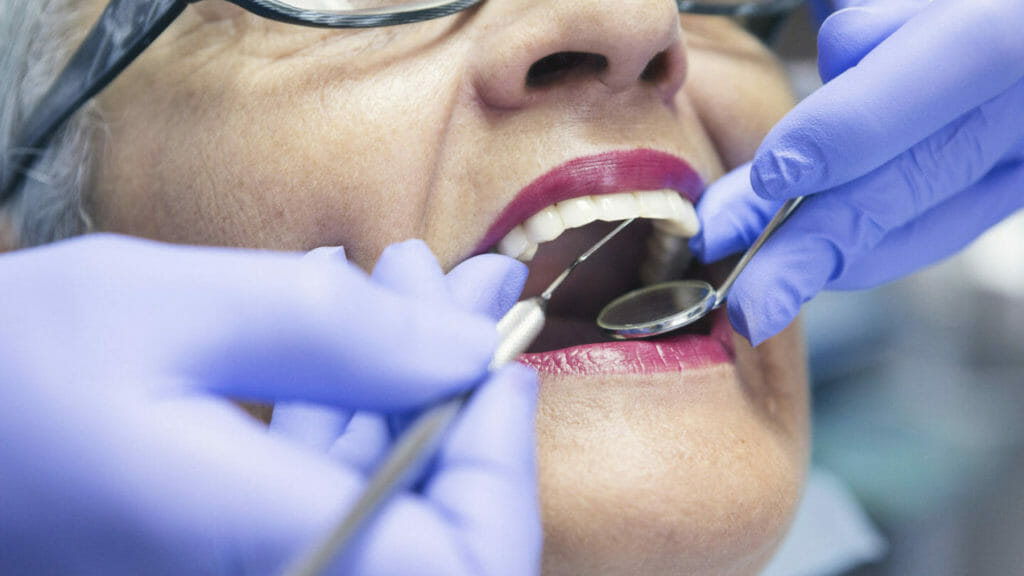
Older adults with dementia who treated their gum disease had a lower risk for dying compared to those who didn’t, a new study shows.
The study, which was published Monday in Scientific Reports, found that people who didn’t get periodontal treatments had an approximately 1.99 times higher risk of death than those who were treated.
Researchers examined data from 1,131,406 patients with dementia in South Korea who were over the age of 65. Between 2002 and 2018, some of the people had periodontal disease treatment. The mortality rate was about 10% among the patients with dementia during the study period. Over the span of 17 years, 83.5% who survived had gum disease treatments and 71.5% who survived didn’t have periodontal treatments.
Overall, the risk of death in the non-treatment group was approximately 1.83 times higher than that of those who got treatment. The treatments included deep cleaning as well as surgical procedures.
The 17-year survival rate of people with Alzheimer dementia who received periodontal treatment was higher than that of people who had vascular dementia, the data showed.
“These findings suggest that preventive periodontal treatment may decrease mortality risk in older people with dementia,” the authors wrote.
The proportion of females with dementia in the study was about 2.2 times higher compared to males, but the risk of death was higher in males. This fact aligns with previous research, the authors noted.
A study published Jan. 26 in Alzheimer’s & Dementia has linked periodontitis, also called gum disease, to the risk for Alzheimer’s disease and related dementias. That team said periodontitis was linked with MRI findings that are indicative to a person’s risk for Alzheimer’s disease or an associated dementia. While the findings can’t prove periodontitis causes the cognitive diseases, the scientists said more research should be done on the relationship.



